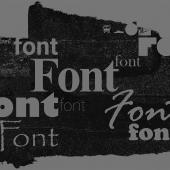
Karna Nisewaner
INTELLECTUAL PROPERTY COMMITTEE CHAIR
Karna Nisewaner joined Cadence in 2011 and has led the IP practice area since January 2014. Previously, she was a member of the intellectual property and litigation team at Intuit, and before that she spent four years with IBM’s IP department supporting the IBM software group. Nisewaner is experienced in open source software registration and audit programs, preparation and prosecution before the US Patent and Trademark Office (USPTO), antipiracy and license compliance programs. She is also experienced in drafting and negotiating complex technology and settlement agreements.
What interested you in the in-house practice of law, and how did you come to be an attorney at Cadence?
I became interested in going in-house because I thought of it as a way for me to engage more with the technology of a particular company and work more closely with the business. I like being able to advise my internal clients on risks and help come up with more than just legal solutions. I was hired by Cadence to fill a role that mirrored both my experience with patents and my experience with open source.
What is the single greatest challenge that your law department is facing, and how are you dealing with it?
One of the greatest challenges is that the workload is not going down; there is always a new project, a new M&A, a new litigation or a new crisis. We all need to learn how to best prioritize our time and how to work more efficiently in an environment that is moving fast. From a subject matter perspective, I think that trade secrets and how you keep your most valuable assets confidential is the biggest issue facing IP teams.
In October 2014, you were elected chair of the IP Committee. How did you get involved initially?
I was at the Annual Women in IP Law CLE Luncheon that is co-sponsored by the ACC–San Francisco Bay Area (ACC-SFBA) when I met Monica Winghart. She told me about ACC and said that I should get involved. Shortly after that, I became the webinar chair for the IP Committee. Then in 2011 I went to the ACC Annual Meeting in Denver and joined the executive leadership team of the IP Committee.
What are some of the ways that the IP Committee provides value to its members?
Each month at our committee meeting we provide a Legal Quick Hit with our sponsor, Kilpatrick Townsend, and a series of timely updates from committee members in the areas of trademark, transactional, patents and copyrights, providing appropriate updates on what’s hot in IP law. We offer several webcasts on IP during the year, and then committee members help create additional materials for ACC in the form of Quick Counsels, Docket articles, InfoPAKsSM, Forms & Policies and Top Tens.
What substantive practice issues does your committee address?
The mission and purpose of the Intellectual Property Committee is to act as a central resource for all ACC members with an expertise or interest in intellectual property law, covering at least patents, copyrights, trademark, transactional and trade secrets. The Intellectual Property Committee provides a network for its members to promote the development of corporate legal practice in the area of intellectual property law and to further keep current and consult on the latest case law and legislative and administrative actions affecting intellectual property law. We also have worked to plan a number of events with the USPTO.
How has the IP Committee helped you in your career?
I believe the IP Committee has helped my career by connecting me with a number of other IP practitioners who are not patent specific and not just from the San Francisco Bay area. The people I work with through the committee have helped me to see more broadly the area of intellectual property practice and the different types of considerations that I, as a practitioner, must make as in-house counsel. I think this has reflected itself in my career by making it easier for me to take my practice to new areas, like license compliance and contract drafting, and also to highlight to my management that I am a leader.




